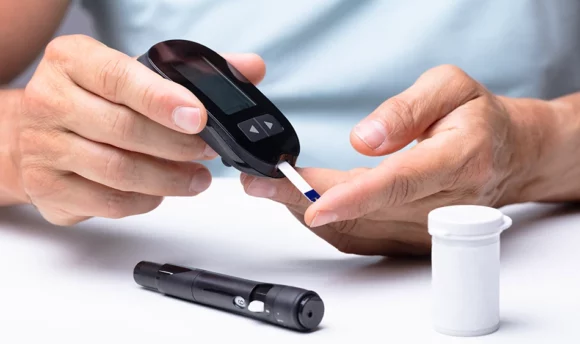When to Take Keto Pills: Morning or Night?
Keto pills are a great supplement for those on a ketogenic diet; however, some people may be confused about when they should take them. Below, we will detail everything you need to know about keto pills.

Keto pills are a great way to supplement your ketone intake. By ingesting more than your body can produce, the state of ketosis is more balanced and, thus, more effective.
Keto diet pills also have the added benefit of reducing hunger, which is great for those wanting weight loss or to lose belly fat. However, you may be confused about the best time to take keto diet pills.
Taking any supplement requires you to become acquainted with its nutritional value and specific health benefits. You also need to know how to take it to maximize its effectiveness. To this end, the pills we’re about to discuss are among some of the best weight loss pills available – but you’ll find out all about that in the article below.
When to Take Keto Pills: Morning or Night?
Simply put, keto pills are best taken during your fasting hours, whether that be in the morning or evening. Ideally, they should be taken twice daily, 30 minutes before a meal.
Nonetheless, before you start taking keto diet pills or begin a keto diet, it is important to consult your physician. While both the keto diet and keto diet pills are perfectly safe, it is possible you may have an underlying condition that could cause complications. Additionally, you shouldn’t take keto weight loss pills to lose belly fat – they are best used to complement your diet.
What Are Keto Pills?
Keto pills are keto diet supplements that provide the body with ketones that tend to help with weight loss. Ketones signal your body to burn fat instead of carbs, so you shed pounds faster than usual. Ketones are naturally prepared inside the body, but keto pills provide the body with even more.
There are two types of ketones that can be found inside your body. The first type, known as endogenous ketones, comes into play whenever your body experiences a deficiency of carbohydrates or glucose. In order to combat these deficiencies, your body assumes a fat-burning state known as ketosis.
The second ketone body type is known as exogenous ketones. These ketones are not normally produced within the body, but they are equally as important [1]. Fortunately, exogenous ketones (which take the form of exogenous ketone supplements) work to perfectly mimic the effects of ketosis by upping the ketone levels found in your blood.
While ketosis is normally achieved by following a keto diet, exogenous ketone supplements can induce ketosis without adhering to a particular lifestyle, which is why they have become so popular. Additionally, keto pills are also known to make you less hungry throughout the day, a valuable trait for those who want to lose weight.
However, it should be noted that while you can choose not to follow a keto diet plan, pills are much more effective when they are taken in tandem with the right diet.
Do Keto Pills Work?
There has been very little research into the efficacy of keto pills [2]. While many people have testified to their usefulness, there is a distinct lack of scientific credibility to support these claims.
Of course, that isn’t to say that there haven’t been any studies into keto pills. In 2021, a small study determined that they help maintain ketosis for those on a ketogenic diet [3].
This is due to ketone salts found within the pills, specifically a salt known as BHB or beta-hydroxybutyrate. BHB salts help improve ketone levels in the blood, which naturally contributes to an overall improved state of ketosis.
However, there are some concerns related to the increased keto BHB levels. Specifically, scientists have expressed some worry due to the increased salt levels, especially because the salts were so concentrated. Additionally, the study determined that keto pills do not necessarily improve one’s health, at least by themselves [4]. Moreover, the pills did not necessarily correlate to the weight loss of the participants in the study.
Another study determined that ketone salt supplements (like keto pills) can reduce the amount of harmful fatty acids and triglycerides in the blood [3]. Unfortunately, this study did not examine the effects of taking such supplements over an extended period of time.
Clearly, more research is required to truly determine the efficacy of keto pills in weight loss. At the very least, however, there have been no signs of adverse side effects, and they haven’t been shown to harm one’s health. But despite the lack of scientific evidence, many keto dieters swear by these pills.
Do You Take Keto Pills on an Empty Stomach?
According to the directions for use that come with every keto pill product, they are most effective when taken with water around 30 minutes before eating. Doing so will decrease your appetite by around 50%, which is perfect for weight loss enthusiasts.
On the other hand, should you choose to eat before taking a keto pill, you may not experience any change in how much you consume, as these pills are at their least effective when taken after a meal that is heavy in carbs. They will still raise your ketone levels, but not by a lot, which will inhibit your body’s ability to assume the ketosis effect.
Are Keto Pills Safe?
Keto pills are generally safe to use for most people. However, everyone’s body is unique – some people may experience certain side effects, including brain fog, extreme fatigue, nausea, headaches, or even increased hunger.
This particular collection of symptoms is commonly referred to as the “keto flu.” It usually begins at the start of your keto diet and may dissuade you from continuing. However, like any normal cold, it usually subsides within a few days, and the symptoms usually don’t present themselves again.
For some people, more extreme symptoms may present themselves. For example, you may be affected by leg cramps upon beginning the keto diet. These cramps typically arise due to dehydration or a loss of minerals within the body. Unfortunately, these are direct signs of ketosis.
Another side effect you may experience after taking keto pills is poor digestion. This is due to the changes in your diet. Constipation is fairly common among keto adherents, while some may also experience diarrhea, though this is rare. Both symptoms result from a lack of fiber and poor water intake.
Overall, it’s important to understand that these symptoms and side effects are perfectly natural and should not pose any long-term issues, provided you do not have any underlying medical conditions. So before taking keto pills or following the keto diet, consult with your physician.
A Word From a Nutritionist
Keto pills are usually perfectly safe to use, provided you use them correctly. The time you take them depends on your fasting window, so evaluate and choose accordingly.
Before you start taking keto pills or beginning your ketogenic diet, consult your physician. While the effects of these pills don’t usually pose any significant risks, those with underlying medical conditions may be at risk of experiencing side effects when taking them.
While keto pills can reduce hunger, understand that you will still need to put in the work to lose weight yourself. This includes living a healthier lifestyle, doing regular exercise, and creating a balanced meal plan.
Conclusion
Keto pills are incredibly effective at helping stabilize the ketosis induced by a keto diet. They are a great addition that won’t break your fast and may, in fact, help burn belly fat and aid weight loss by reducing your appetite.
However, make sure you are prepared to deal with the keto flu that you will likely experience, especially if you lose weight fast, and be aware of some of the other side effects that may be unpleasant to deal with. Read through diet pill reviews to see which weight loss pills are best for you.
Sources
- Hashim S. A., Vanltallie T. B. Ketone body therapy: from the ketogenic diet to the oral administration of ketone ester. 2014 Sep. https://pubmed.ncbi.nlm.nih.gov/24598140/
- Rho J. M., Sankar R. The Ketogenic Diet in a Pill: Is this Possible? 2008 Nov. https://www.ncbi.nlm.nih.gov/pmc/articles/PMC2692867/
- Buga A., Kackley M. L., Crabtree C. D., Sapper T. N., Mccabe L., Fell B., LaFountain R. A., Hyde P. N., Martini E. R., Bowman J., Pan Y., Scandling D., Brownlow M. L., O’Connor A., Simonetti O. P., Kraemer W. J., Volek J. S. The Effects of a 6-Week Controlled, Hypocaloric Ketogenic Diet, With and Without Exogenous Ketone Salts, on Body Composition Responses. 2021. https://www.frontiersin.org/articles/10.3389/fnut.2021.618520/full
- Harvey C. J. D. C., Schofield G. M., Williden M. The use of nutritional supplements to induce ketosis and reduce symptoms associated with keto-induction: a narrative review. 2018. https://pubmed.ncbi.nlm.nih.gov/29576959/

















































 Select your language:
Select your language: 








